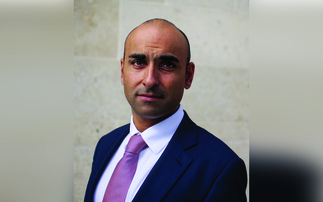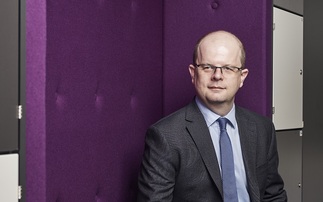Professional Adviser's investment detective Matt Morris delivers his verdict on five developments in the investment and pensions arenas that have caught his eye over the last month
Chasing Amy
London's junior market, AIM, is on course to exceed the market capitalisation peak it reached in 2007. Latest figures give it a market value of £95.5bn - just a bull's roar below the £97.6bn it reached 10 years ago. Portfolios of AIM companies are becoming increasingly popular as a means to mitigate inheritance tax via business property relief. Hawksmoor AIM portfolio manager Ian Woolley argues valuations are becoming stretched in the larger, most popular AIM stocks as money floods in. Instead, he believes, more attractive opportunities can be found lower down the size spectrum, which is more readily accessed by the nimbler boutique asset managers.
Verdict: Promising lead
Crossfire
iPipeline is calling for better communication around annuities. FCA policy statement PS17/12 requires annuity providers to deliver a ‘nudge' - informing consumers how much they could gain from choosing a different provider when they buy an annuity. Meanwhile, when an adviser provides a guaranteed quote, they need to provide a Pension Annuity Comparator - a prompt in the form of an additional compliance form that sits alongside a guaranteed client-specific illustration. This clearly needs to be provided to the client and captured for record-keeping. But since retirement is no longer a fixed date, iPipeline believes it is in the best interests of the adviser and client to provide regular prompts explaining the annuitisation options for clients who have deferred their retirement, or are in drawdown. Full disclosure of a client's ongoing options should encourage open and transparent reviews on longevity and income sustainability and iPipeline says IFA firms have begun developing this capability.
Verdict: Promising lead
Split
New research has provided an insight into the current state of the final salary pension transfer market. Adviser Drewberry analysed the results of its online final salary pension calculator and revealed the highest multiple so far calculated by the online tool is 54 while the lowest is just 11. This means that, while some scheme members with a prospective £10,000 a year pension are being presented with transfer values of around £540,000, at the other end of the spectrum, members of less generous schemes are being offered just £110,000 in exchange for the same level of future income. "The median multiple recorded for someone retiring at age 60 is 30 although this falls to 24 for those aiming to retire at age 65." said Drewberry's Neil Adams. "It is clear the relative size of the transfer values being offered depends on the individual schemes involved, not their industry sector. We have seen transfer values ranging from 15 to 50 and beyond in the telecom sector alone."
Verdict: Back to the lab
Open Range
Newton Investment Management is launching an adviser share class for its Global Balanced portfolio. The £647m fund is run by Simon Nichols and is top quartile over three years in the Mixed Investment 40-85% Shares sector with a return of 33.5%. The fund's intermediary share class will have an ongoing charges figure of 0.63%. The firm's head of UK intermediary distribution Fergus McCarthy said: "Historically, the fund has been sold to institutional investors - primarily DB and DC pension schemes. Given Newton's long heritage in multi-asset investing and because of the interest we have seen in the fund more widely from advisers across the UK, we have decided to launch an intermediary share class for the fund that advisers will be able to access on behalf of their clients."
Verdict: Promising lead
The Dilemma
A poll of more than 15,000 UK investors with £100,000-plus found three quarters (76%) of respondents would not pay £150 per hour for advice while only 10% would pay £150 or more per hour for advice. According to Legg Mason, the majority of even the wealthiest investors think financial advice is too expensive, although younger investors are more likely to seek advice than their elders and may be prepared to pay more too. Millennials were far more disposed to pay for advice, with just 17% ruling it out completely while 19% said they would be willing to pay the going rate of £150 per hour or above for advice. Legg Mason's Justin Eede said: "In the post-RDR world, it is perhaps unsurprising millennials are more open to paying for advice, while older generations - who were not previously paying advisers directly - are less keen to do so."
Verdict: Back to the lab
Matt Morris is investment director at Carr Consulting










